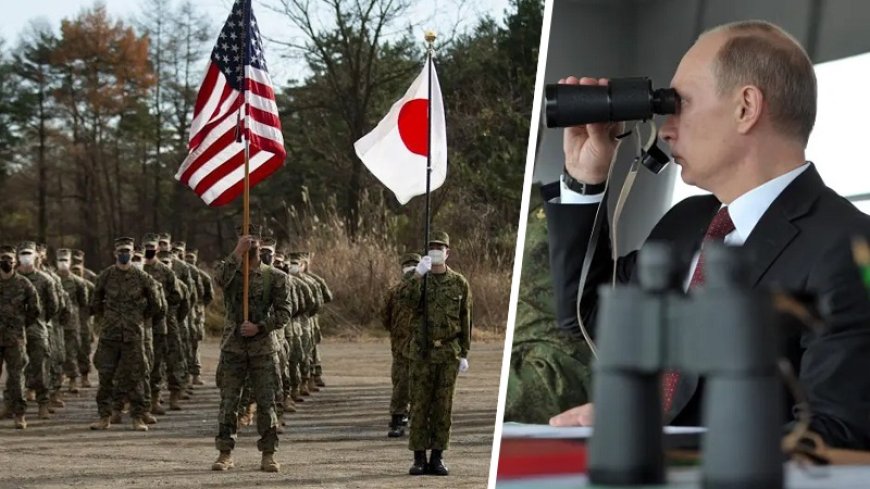Is NATO Encouraging Japan to Escalate Tensions with Russia?

In a stern warning, the Russian Foreign Ministry has expressed its strong objections to Japan’s recent military exercises near the Russian border, which included participation from NATO member states. The objection was formally communicated to the Japanese Embassy in Moscow.According to an official statement from the Russian Ministry of Foreign Affairs, Japan’s military activities, particularly those involving German and Spanish forces, are seen as provocative and potentially threatening to Russia’s national security. The Ministry criticized these exercises as exacerbating tensions and contributing to instability in the region.
Japanese Defense Minister Minoru Kihara announced earlier that the Japanese Air Force would conduct joint exercises with Germany, France, and Spain between July 19 and 25. The exercises with France were held at an air base in Ibaraki province, while the drills with Germany and Spain took place in Hokkaido, which is in close proximity to the Russian border.
This development comes amidst longstanding disputes between Russia and Japan, notably over the Kuril Islands. These islands, known as the Northern Territories in Japan, have been a point of contention since World War II, with both nations claiming sovereignty.
In recent years, Russian officials have frequently criticized Japan's military posture in the Asia-Pacific region, viewing it as an alignment with Western military strategies that challenge Russia’s influence. The involvement of NATO member states in these exercises is particularly concerning for Moscow, which sees NATO’s expanding presence in the region as a direct threat.
The joint military activities are part of Japan's broader strategy to strengthen its defense capabilities and enhance military cooperation with NATO allies. This move aligns with Japan's increasing concerns over regional security threats, particularly from North Korea and China. However, Japan’s actions have drawn ire from Russia, which perceives them as a coordinated effort to encircle and pressure Moscow.
In response to Russia's objections, Japanese officials have reiterated their commitment to regional security and defense partnerships, emphasizing that the exercises are routine and defensive in nature. They argue that such collaborations are essential for maintaining stability and deterring potential threats in the Asia-Pacific region.
The situation underscores the delicate balance of power in the region, where historic grievances and contemporary security concerns continue to shape the geopolitical landscape. As Japan deepens its military ties with NATO, it remains to be seen how Russia will navigate this evolving security environment and what measures it might take to counter what it perceives as growing encirclement by NATO forces.













































